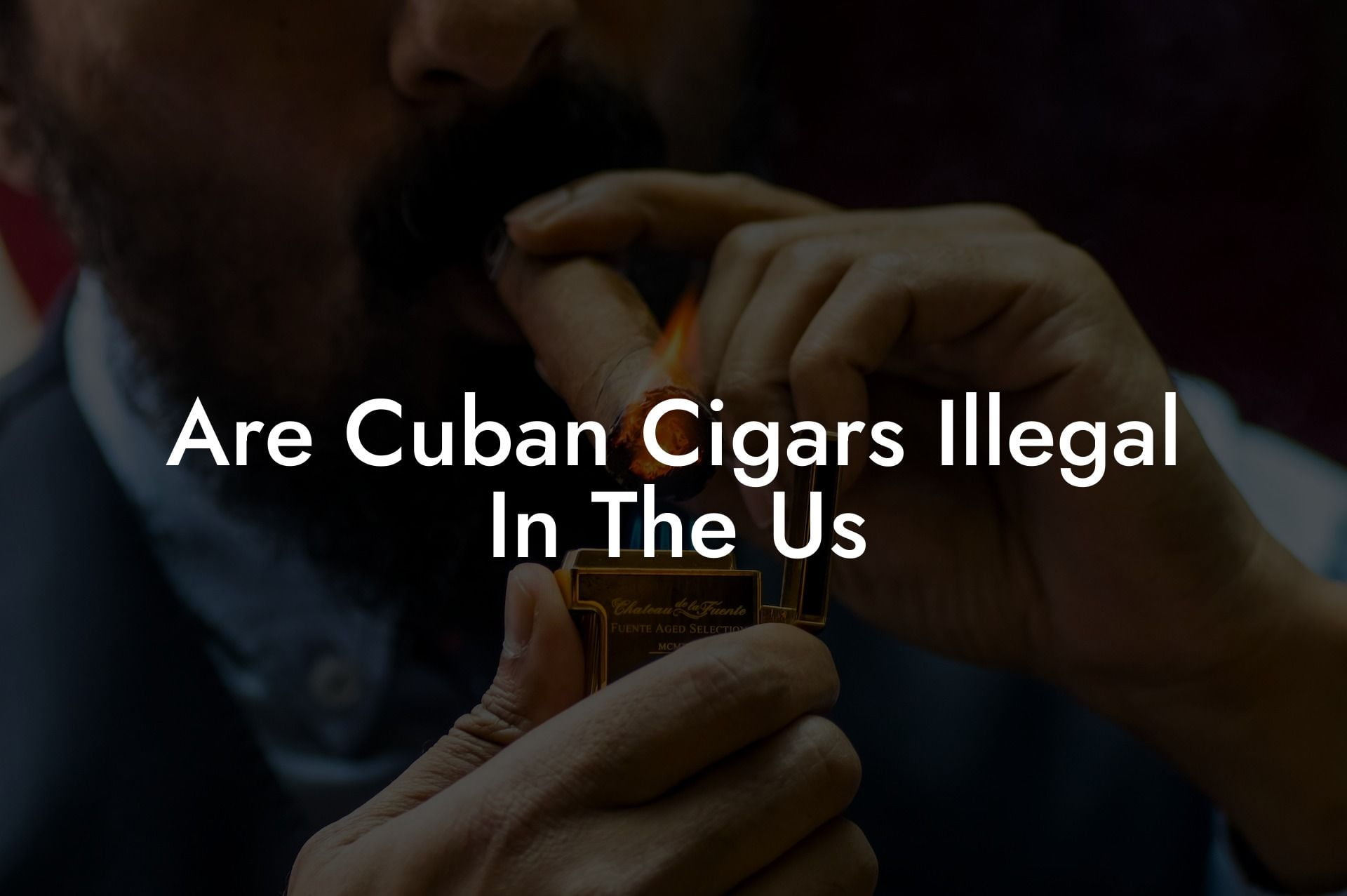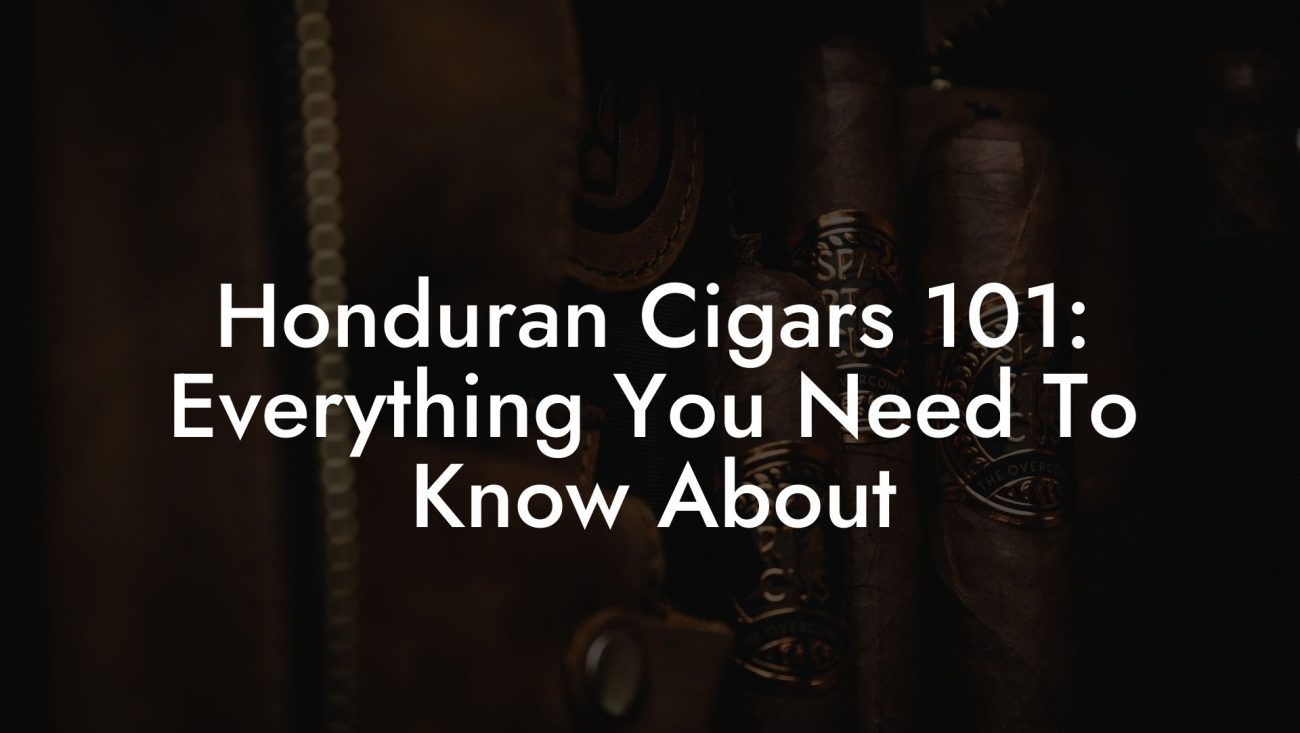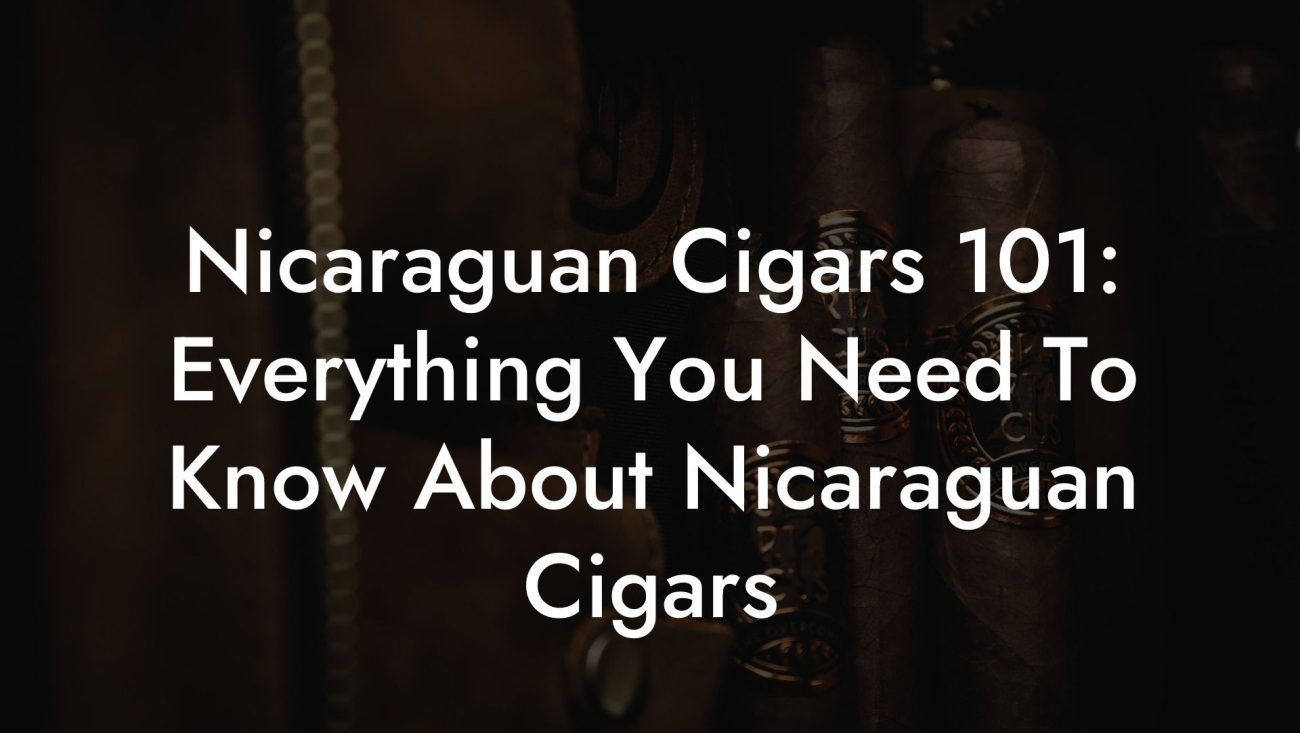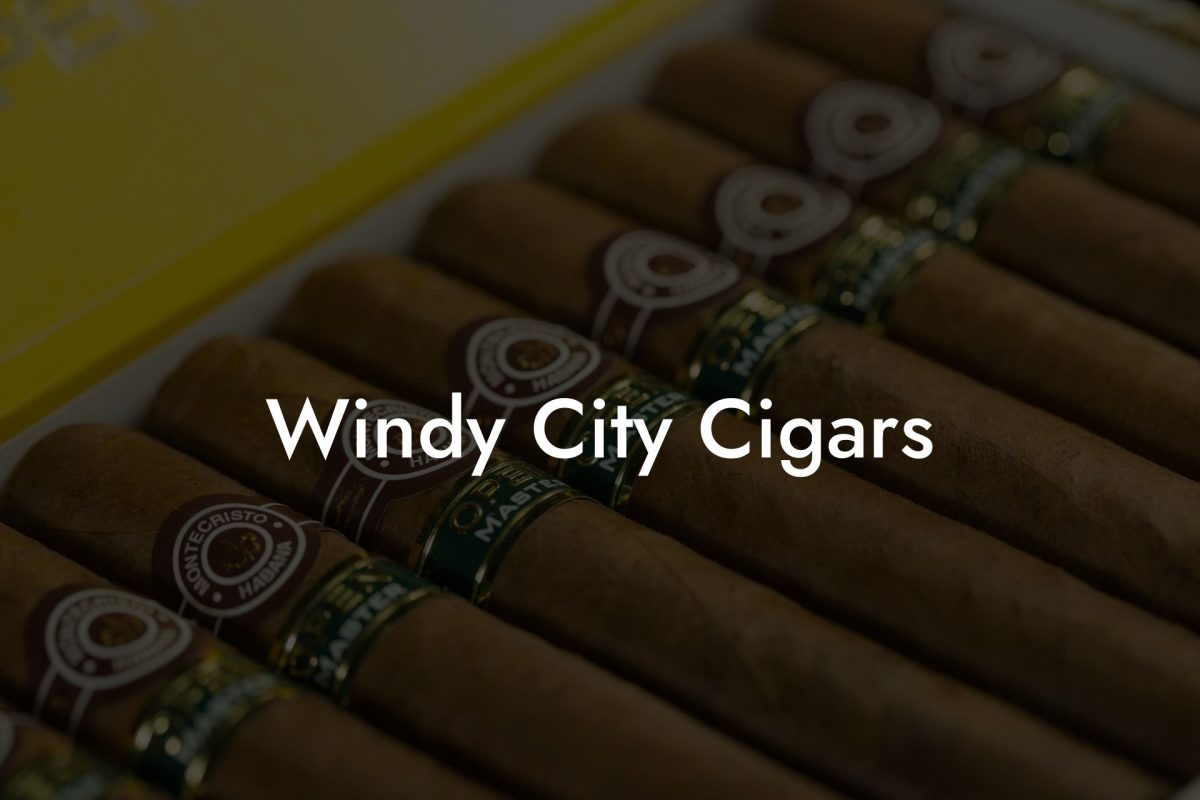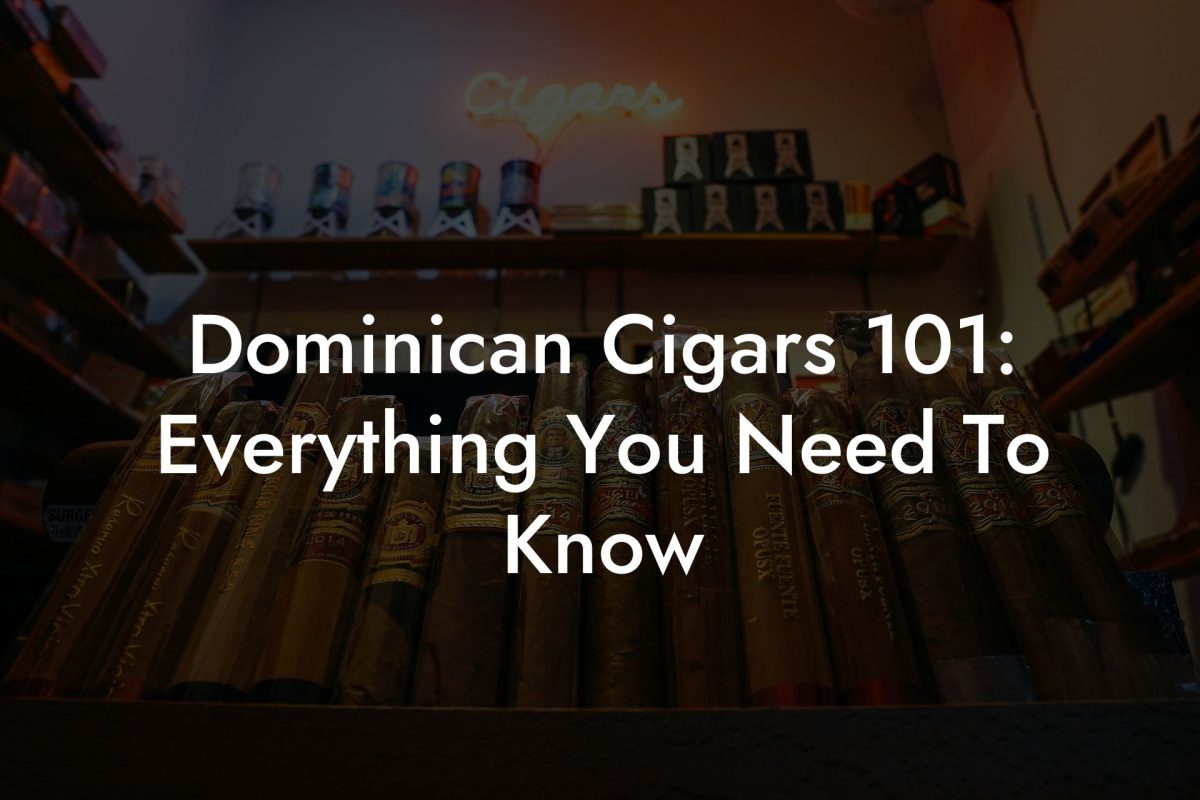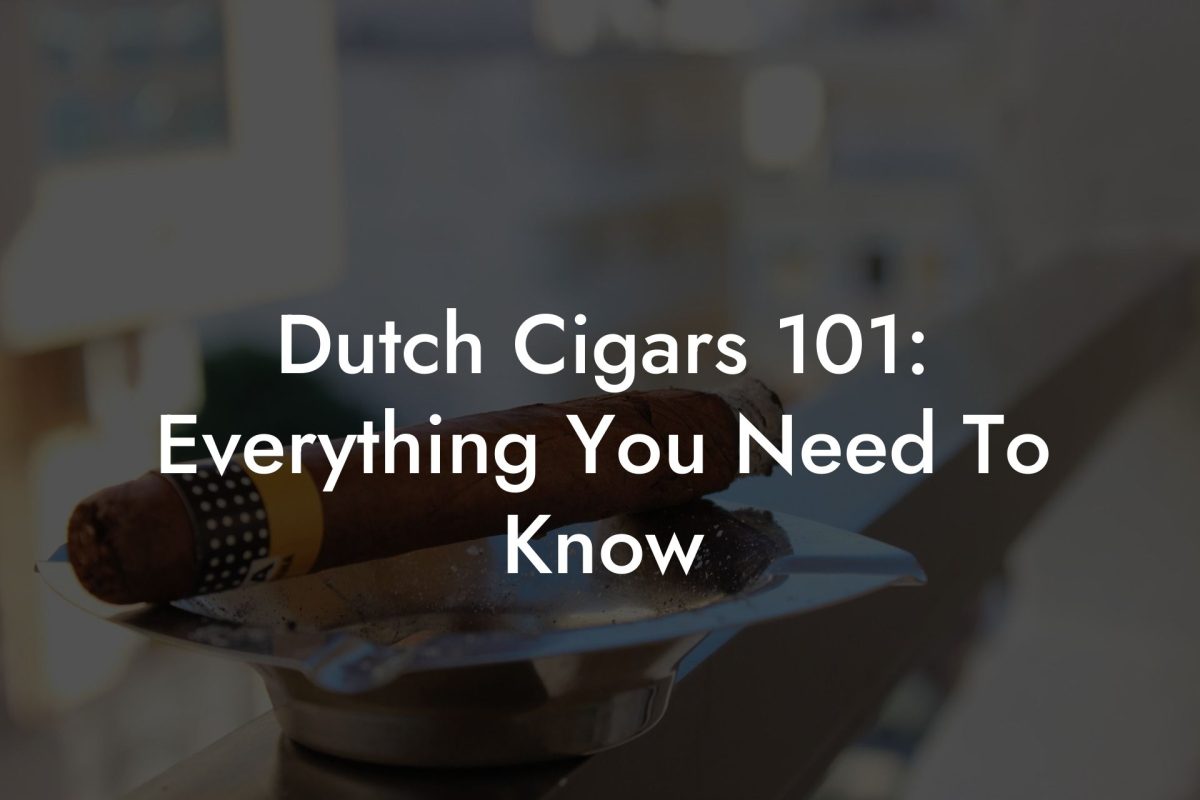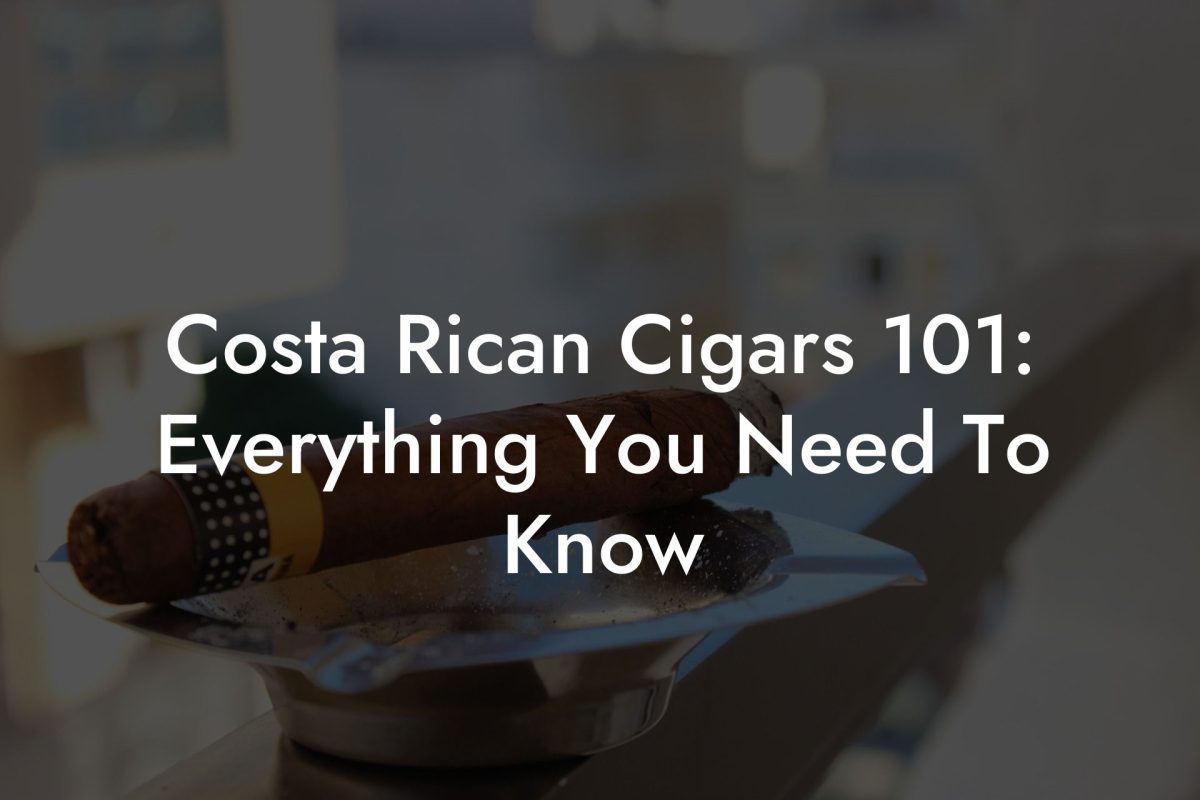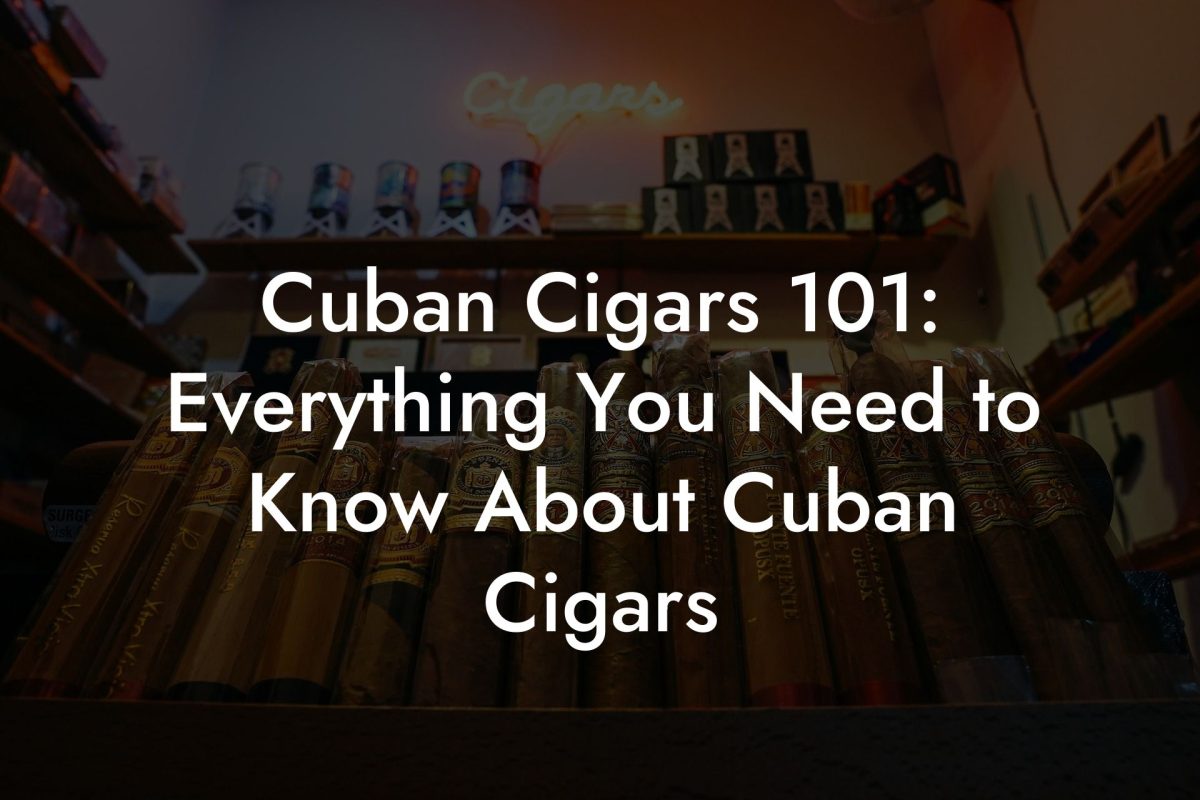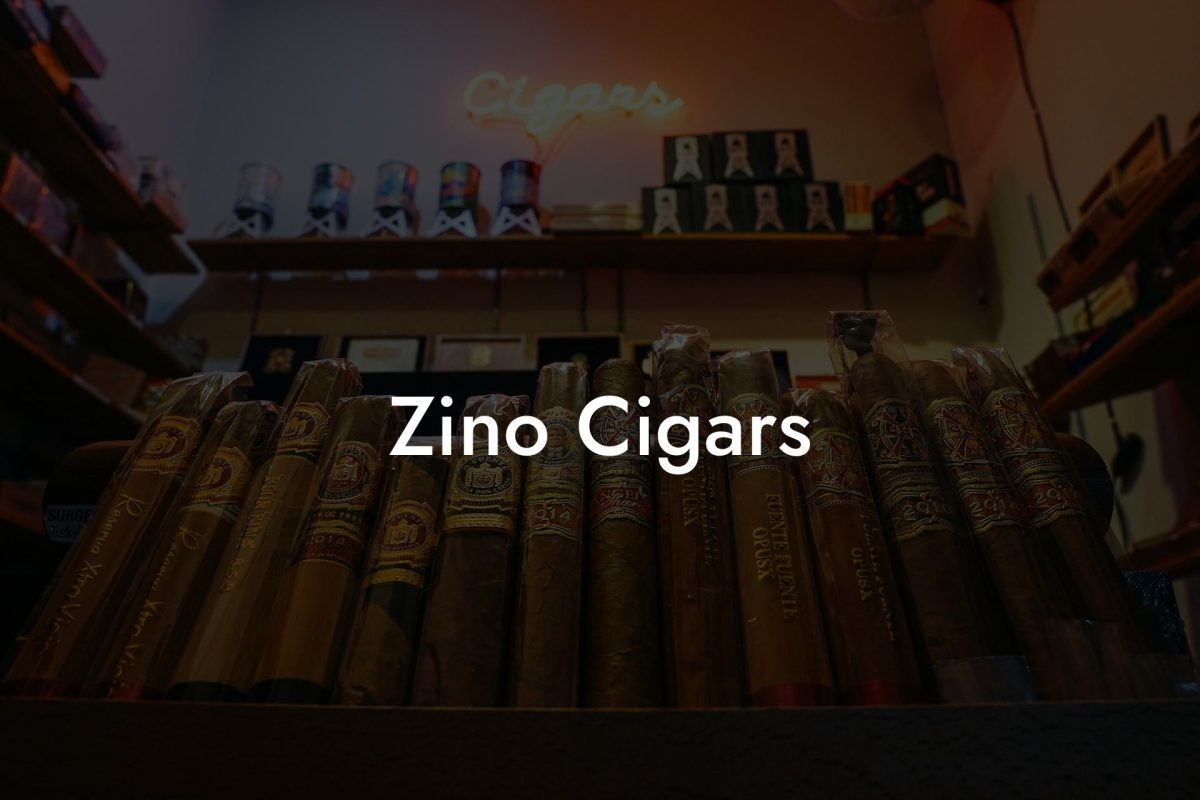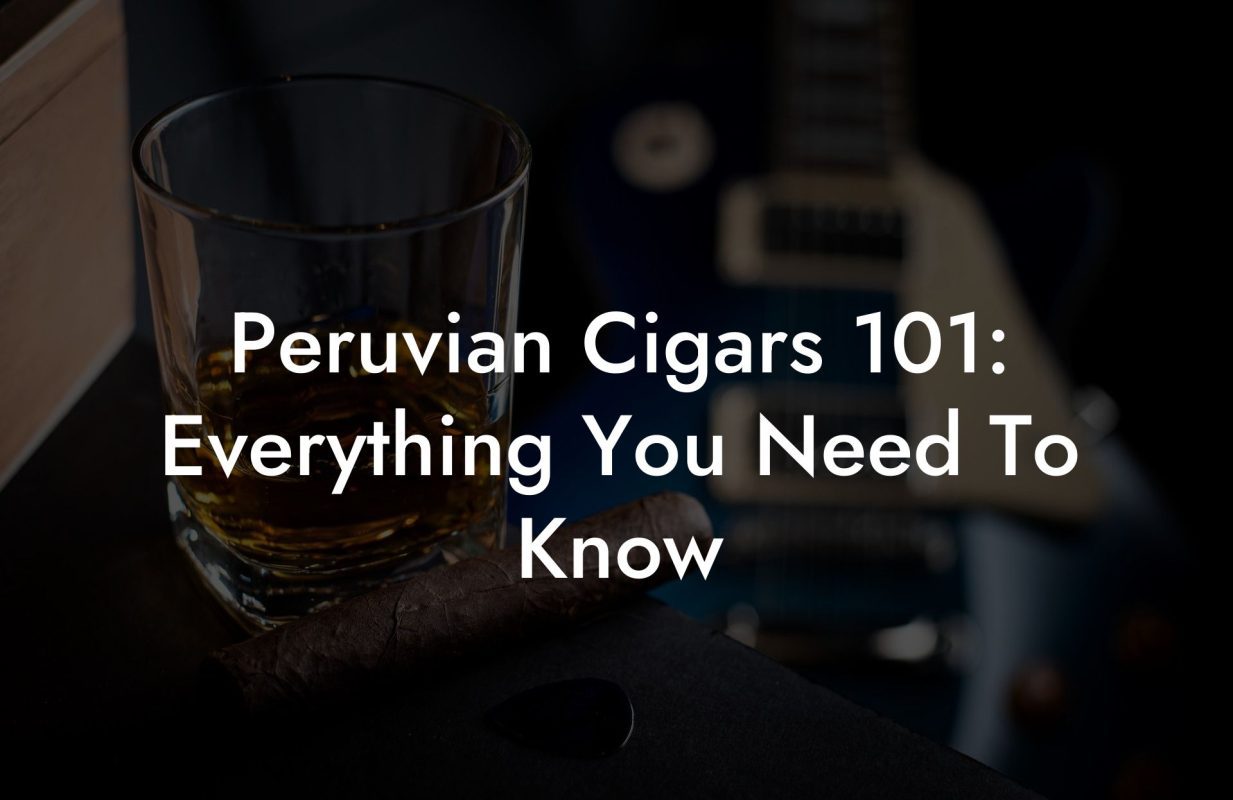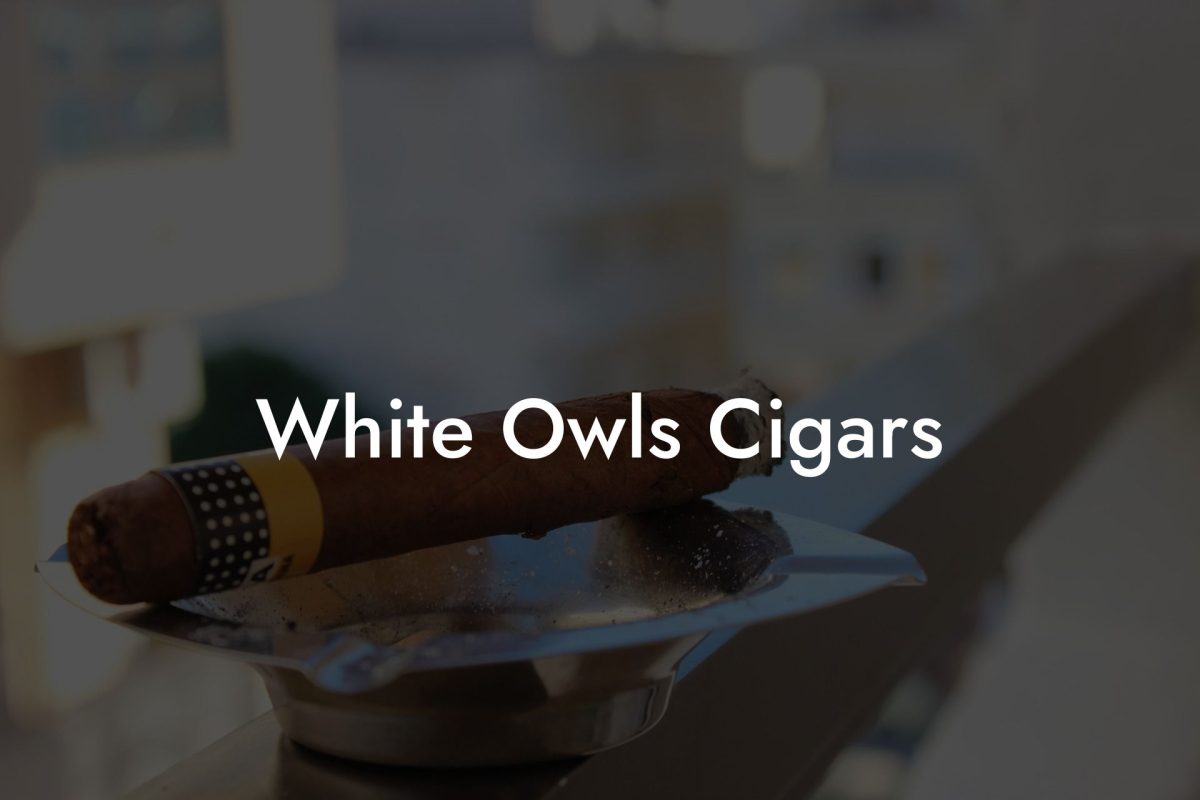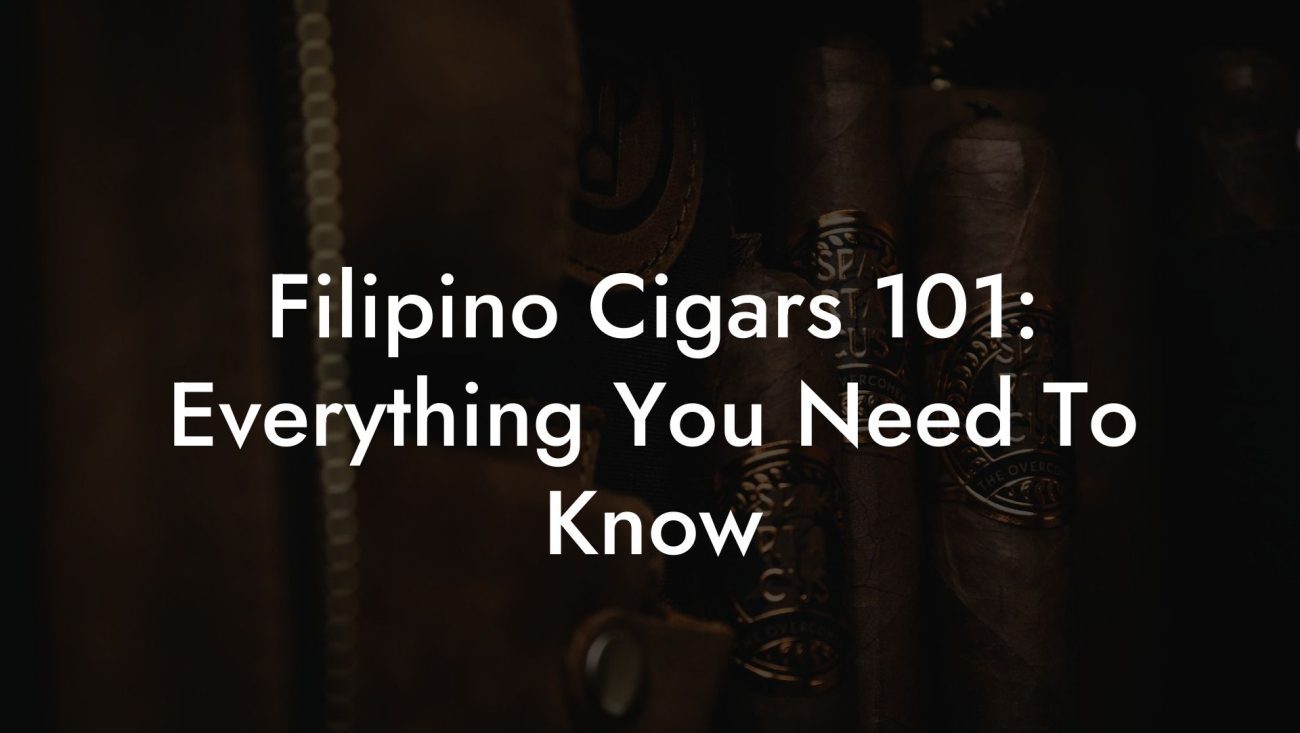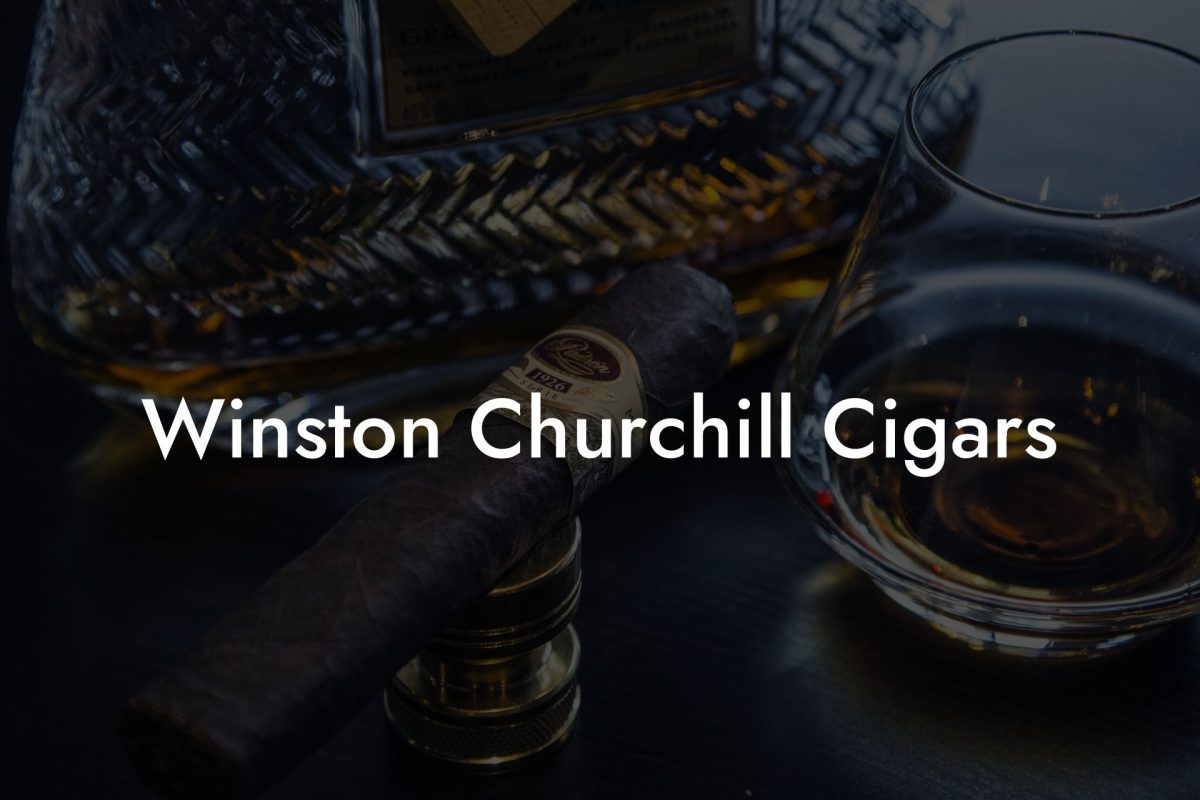The allure of a perfectly rolled cigar, the rich tapestry of history woven into every leaf, and the mystique of forbidden indulgence all come together in one question that has sparked debates, conspiracies, and curiosity across generations: Are Cuban Cigars Illegal in the US? This is not just about tobacco; it’s a deep dive into international politics, artisanal craftsmanship, and the fiercely independent spirit of cigar aficionados, especially those Gen-Z and millennial rebels who dare to question the status quo.
Are Cuban Cigars Illegal In The Us Table of Contents
Understanding the Cuban Cigar Phenomenon
Historical Context: The Cuban Embargo and US Cigar Laws
Are Cuban Cigars Illegal in the US? The Current Legal Landscape
The Market Impact: How the Cuban Cigar Ban Influences Supply, Demand, and Consumer Behavior
Risks and Realities: Why Chasing the Forbidden Might Not Be Worth It
Cultural Impact: Why Today’s Consumers are Drawn to the Forbidden Luxury
How Changing US Policies Might Affect Cigar Enthusiasts
Navigating the Gray Area: Legal Smoking and Alternatives
Resources and Community Support: Your Next Steps
FAQs: Your Burning Questions About Cuban Cigars and US Law
Your Journey Forward: Embracing Cigar Culture with Clarity and Caution
Understanding the Cuban Cigar Phenomenon
Cuban cigars are not merely rolled tobacco, they are a cultural phenomenon, a work of art, and a legacy of generations of skilled rollers (torcedores) whose techniques have been honed as much by passion as by tradition. With every puff, you’re not only inhaling centuries of Cuban history but also the impact of decades of international relations, trade embargoes, and spirited debates over legality.
For cigar enthusiasts across the globe, Cuban cigars represent a unique blend of heritage, quality, and mystique. Their reputation for superior craftsmanship and an unmistakable flavor profile makes them a coveted commodity. While their flawless construction and taste have made them legendary, the political and economic tensions surrounding them often cast a shadow on their desirability in numerous markets, especially within the United States.
This page is dedicated to unpacking that mystique, exploring the regulations, the history behind the embargo, and the modern-day legal landscape, all while keeping the conversation engaging, humorous, and accessible for today’s dynamic audience.
Historical Context: The Cuban Embargo and US Cigar Laws
To truly understand the legal status of Cuban cigars in the US, it’s essential to start at the beginning. The Cuban embargo, which has been in place for several decades, is at the heart of the regulatory maze that surrounds these prized cigars. Following the Cuban Revolution, strained relations between Cuba and the US led to economic sanctions and restrictions that would eventually spot-light Cuban cigars in political debates and popular culture.
The embargo, initially designed to curb the influence of a communist regime, spread its tentacles across multiple industries, and the luxury cigar market wasn’t spared. As Cuban cigars became symbols of both unmatched quality and the allure of the forbidden, they also turned into political pawns. The trade bans and strict import regulations meant that for years, any attempt to bring Cuban cigars legally into the US was met with bureaucratic roadblocks and hefty penalties.
This historical backdrop sets the stage for a multifaceted examination of Cuban cigars as more than just a tobacco product, they are intricate symbols of international politics, cultural pride, and the conflicts between commerce and ideology.
Even as political landscapes shift and global relationships evolve, the legacy of the Cuban embargo has left an indelible mark on how American law treats these prized cigars. This rich history continues to influence both consumer attitudes and governmental policies, making it a fascinating case study in how culture, politics, and commerce intersect.
Are Cuban Cigars Illegal in the US? The Current Legal Landscape
The burning question on the lips of cigar aficionados everywhere is whether Cuban cigars are illegal in the United States, and the answer is layered with nuance. In essence, while owning a Cuban cigar is not technically a criminal offense, the legal pathways to obtaining them in the US are convoluted due to longstanding embargo policies.
Over the years, the US government has maintained a tricky relationship with Cuban products, particularly cigars, largely because they are intertwined with a broader political agenda. Despite some relaxation under certain administrations, the remnants of decades-old policies still impact the importation and sale of these luxury items.
If you’re a cigar enthusiast who dreams about savoring a legendary Cohiba or a robust Montecristo, you’re likely aware of how these regulations can make your purchase feel like a small act of rebellion. But caution is key, venturing into the world of Cuban cigars without a clear understanding of the law might land you in a legal quagmire.
The Trade Embargo and Its Effects
With the Cuban embargo officially in place since the early 1960s, the restrictions on importing Cuban cigars have been a defining feature of US trade policy. The embargo has had ripple effects that go far beyond economics, it’s a saga of cultural disconnect, legal paradoxes, and shifting political loyalties.
Even though some loopholes and exceptions have been exploited over time, the overarching stance remains: any direct importation of Cuban cigars is wrapped in layers of legal complexities. The policies are designed to discourage the trade of Cuban goods, and Cuban cigars naturally fall under that umbrella. These complexities continue to spark debates among lawmakers, importers, and even international diplomats.
Travel Exceptions and Importation Controversies
Interestingly, there are nuances in how travelers interact with the law concerning Cuban cigars. For years, the so-called "travel exception" allowed US visitors to Cuba to bring back a limited quantity of Cuban cigars for personal use. However, the rules surrounding this exception have morphed over time and vary significantly with changing administrations.
Despite these exceptions, the commercial sale and large-scale importation of Cuban cigars remain heavily restricted. This means that while you might be able to casually enjoy a Cuban cigar that you picked up abroad, bringing larger quantities into the country, or selling them online or in stores, can quickly lead you into legally murky territory.
This travel exception has become both a topic of pride and contention among enthusiasts, as it embodies both the romance of travel and the frustrations of modern regulation.
Legal Loopholes and Changing Policies
When it comes to navigating the labyrinth of Cuban cigar legality, there have been several attempts to craft legal loopholes. Some importers have tried to skirt the issue by acquiring cigars through third-party channels or by blending tax and duty techniques that play on the technicalities of international trade laws.
However, these legal maneuvers are not without risk. The US government has been known to crack down on activities that appear to undermine the spirit of the embargo. While some administrations have signaled openness to reducing restrictions, significant barriers remain. These barriers are as much about political symbolism as they are about trade and commerce, meaning that despite changing policies, the bans are deeply ingrained in the broader legal framework.
For the savvy consumer, understanding the intricacies of these policies is crucial. It’s a field where every legal loophole is met with a counter-regulation and where staying informed is your best defense against potential legal repercussions.
The Market Impact: How the Cuban Cigar Ban Influences Supply, Demand, and Consumer Behavior
The Cuban embargo has profoundly reshaped the market dynamics for high-end cigars. With Cuban cigars shrouded in legal ambiguity, their scarcity in the American market has inadvertently fueled a black market that thrives on the promise of exclusivity and rebellion.
For many consumers, particularly those searching for a sense of individuality and a break from conformity, the difficulty in obtaining these cigars only adds to their allure. In exclusive collector circles and on niche online forums, possessing a genuine Cuban cigar is akin to holding a coveted trophy, a tangible connection to a storied history and an emblem of defiance against conventional norms.
However, the flip side of this scarcity is the rise of counterfeit products and murky supply chains. With demand outstripping legal supply, underground markets have emerged where the authenticity of Cuban cigars is often questionable. These black market channels not only jeopardize consumer safety but also undermine the very cultural heritage that made Cuban cigars iconic.
The intricate dance between supply and demand in the world of Cuban cigars forces consumers to navigate a delicate balance of legality, quality, and personal ethics, each purchase is as much a legal risk as it is an indulgence in luxury.
Whether you’re a seasoned collector or a curious newcomer, the market for Cuban cigars is a microcosm of larger global trends, where consumer passion meets stringent regulation, and where risk and reward are inextricably intertwined.
Risks and Realities: Why Chasing the Forbidden Might Not Be Worth It
Let’s face it: the idea of snagging a coveted Cuban cigar at any cost is intoxicating. But the reality of dabbling in the forbidden comes with its own set of risks. Beyond the obvious legal repercussions is the inherent uncertainty of purchasing a product shrouded in smuggling, counterfeiting, and quality inconsistencies.
When you venture into the gray realm of illegal imports, you run the risk of ending up with a product that doesn’t live up to the prestige of its reputation. Fake labels, improperly stored tobacco, which can adversely affect the flavor and aroma, and even potential exposure to harmful additives are all concerns that every cigar aficionado should consider.
Moreover, the penalties for violating import regulations can be severe. The US government is strict about customs violations, and being caught with a significant quantity of Cuban cigars could lead to fines, confiscation of products, and even legal action. The last thing you want is your prized collection to become the headline of a customs enforcement story.
In today’s interconnected world, where information is a click away and law enforcement agencies are more vigilant than ever, playing fast and loose with the rules might end up costing you more than just a few dollars, and your hard-earned peace of mind.
So, while the thrill of defying convention is palpable, it’s worth weighing whether the potential rewards truly outweigh the risks. After all, true connoisseurship lies in appreciating the art and history of cigars without compromising on safety or legality.
Famous Cuban Cigar Brands & Their Irresistible Allure
When people think of Cuban cigars, iconic names like Cohiba, Montecristo, and Partagás immediately come to mind. These brands represent not only unparalleled quality and meticulous craftsmanship but also a legacy that transcends generations. Each brand has its own story, a blend of passion, expertise, and historical significance, that makes every puff a journey through time.
Cohiba, arguably the most prestigious of them all, started as a personal favorite of Fidel Castro before becoming synonymous with luxury. Montecristo, with its rich flavors and storied past, carries an air of mystery and elegance, while Partagás is renowned for its robust, earthy profile that speaks to the essence of old-world Cuban tradition.
For many Gen-Z and millennial cigar enthusiasts, these brands resonate on multiple levels. They are symbols of rebellion against the mundane, tokens of a lifestyle that values quality over quantity, and statements of cultural pride. Collectors and casual smokers alike appreciate how each brand encapsulates the rugged, unfiltered beauty of Cuba, the passion of its people and the artistry of its tobacco masters.
Yet, the exclusivity of these brands in the US further intensifies their allure. Because legal access is nearly impossible, every opportunity to enjoy a genuine Cuban cigar becomes a moment of triumph, a personal victory against the backdrop of antiquated policies and global politics.
Whether you’re savoring the spice and complexity of a Cohiba or engaging in spirited discussions on online forums about the best ways to appreciate a Montecristo, the cultural impact of these iconic brands is undeniable. They are more than just cigars; they are a legacy, a statement, and for many, an aspiration wrapped in tobacco leaves.
Cultural Impact: Why Today’s Consumers are Drawn to the Forbidden Luxury
In an age where authenticity and heritage are prized above all, the narrative of Cuban cigars takes on a life of its own. Social media platforms are awash with vintage cigar ads, artistic imagery, and stories of clandestine purchases, a digital scrapbook for those who see themselves as modern-day dandies or rebels with a cause.
For Gen-Z and millennials, the idea of embracing something that is both timeless and forbidden speaks to a desire for uniqueness and individuality. It’s not just about smoking a cigar, it’s about making a statement, aligning oneself with a story that challenges conventional norms and celebrates defiance.
This cultural magnetism has also given birth to a vibrant online community of cigar connoisseurs. From Instagram reels showcasing the ritual of cigar rolling to YouTube deep dives into the rich history behind each brand, the digital age has allowed a new generation to connect with the mystique of Cuban cigars, even if they can only experience it from afar.
The narrative is compelling: in a world increasingly dominated by mass-produced goods and fleeting trends, the Cuban cigar stands as a symbol of artisanal craftsmanship, deep-rooted tradition, and the thrill of the forbidden. It’s a manifestation of cultural resistance, a way for consumers to reclaim a piece of history that has been denied to them by rigid trade policies.
Ultimately, the cultural impact of Cuban cigars transcends the mere act of smoking. It’s about identity, community, and the celebration of a legacy that has inspired art, music, and even fashion. For many, the discussion about their legality in the US is just the tip of the iceberg, it’s part of a larger conversation about freedom, heritage, and the right to savor life's finer pleasures.
How Changing US Policies Might Affect Cigar Enthusiasts
With international relations constantly evolving and domestic policies subject to political tides, there’s always the tantalizing possibility that the legal landscape might shift. Over the years, various US administrations have flirted with the idea of easing restrictions on Cuban products, including cigars. While complete legalization remains elusive, there are signals of potential reform that have sparked optimism, especially among aficionados who view Cuban cigars as a treasure trove of culture and craft.
Recent discussions in political circles and incremental policy adjustments have raised questions: Could the US someday embrace Cuban cigars in a way that encourages legal trade rather than clandestine purchases? Would new trade agreements and a globalized market pave the way for genuine access to these luxurious items without the hidden risks?
The prospects are both exciting and uncertain. For many, the idea that the status quo might change serves as a rallying cry for advocacy and reform in trade policy. Conversations on social media, in specialty forums, and in legislative halls are increasingly highlighting the benefits of international trade and the cultural exchange that would result from lifting old embargoes.
While it’s impossible to predict the future with certainty, what remains clear is that any shift in policy is likely to resonate deeply with a generation that values transparency, global perspective, and the ability to make informed choices about their lifestyles and values.
Navigating the Gray Area: Legal Smoking and Alternatives
Even if the dream of legally importing Cuban cigars into the US remains just that for some, there’s no shortage of alternatives that promise much of the same experience without the associated legal risks. For those unwilling to risk penalties or deal with the uncertainties of the black market, the world of legal premium cigars offers a surprisingly robust selection.
Many cigar companies outside of Cuba produce high-quality, hand-rolled cigars using similar techniques and even tobacco grown in neighboring regions. Dominican, Honduran, and Nicaraguan cigars have earned accolades for their complexity, flavor, and superior craftsmanship, making them worthy competitors alongside the legend of Cuban production.
On top of that, cigar lounges, specialty retailers, and even online communities provide invaluable resources for enthusiasts seeking guidance on legal purchases. Engaging with these hubs not only enriches your knowledge of fine cigars but also connects you with a supportive network of like-minded individuals who share tips, reviews, and recommendations.
By exploring legal alternatives, you can enjoy the sophisticated rituals associated with cigar smoking, appreciating the craftsmanship, savoring the aroma, and discussing flavor notes, without the constant worry of stepping afoul of trade regulations.
After all, the world of cigars is vast and varied. Legal pathways abound for discerning consumers who are willing to embrace quality, authenticity, and a vibrant community that champions responsible enjoyment over risky, unverifiable deals.
Resources and Community Support: Your Next Steps
So, what does this mean for you, the modern cigar enthusiast eager to navigate a landscape tinged with political intrigue, cultural legacy, and legal challenges? First and foremost, staying informed is your best accessory. Follow reliable news outlets, join online forums dedicated to cigar aficionados, and participate in social media discussions where legal updates and market trends are the order of the day.
Educate yourself by reading specialized blogs, watching video reviews, and attending local cigar events or virtual tastings. Many communities have built their own knowledge networks where veteran collectors share insider tips on sourcing legal premium cigars or navigating the complexities involved in travel exceptions.
It’s also a great idea to connect with legal experts in tobacco import regulations, attorneys or trade consultants who specialize in this niche field. They can provide personalized guidance and help you understand how current policies might affect your collection or your next purchase.
Lastly, embrace the journey with a spirit of curiosity and caution. The cigar world is one of passion, history, and craftsmanship, and your engagement in this community is as much about celebrating art as it is about making informed decisions. Whether you plan to expand your collection, share your experiences online, or simply enjoy a fine smoke during a quiet evening, remember that knowledge is your best ally in this fascinating realm.
FAQs: Your Burning Questions About Cuban Cigars and US Law
As you navigate the intricate world of Cuban cigars and US regulations, you likely have a few pressing questions. Here are some of the most frequently asked questions that will help clarify the complexities of this timeless debate.
1. Are Cuban cigars completely illegal in the US?
While Cuban cigars cannot be imported through standard commercial channels into the US due to the longstanding embargo, there are travel exceptions that allow individuals to bring back a limited quantity for personal use. However, the commercial sale and large-scale importation remain prohibited.
2. What are the penalties for possessing Cuban cigars?
Possession of a small number of Cuban cigars for personal use typically isn’t prosecuted. However, if you’re found importing or selling large quantities, you could face fines, confiscation of goods, and legal action, as these activities violate US trade policies.
3. Can I legally purchase Cuban cigars online?
Legally purchasing Cuban cigars online within the US is extremely challenging due to the embargo. Most online vendors offering Cuban cigars operate in gray areas or are based overseas, meaning the legality of their transactions remains highly questionable.
4. What exactly is the travel exception?
The travel exception allows US travelers to bring back a limited amount of Cuban cigars purchased abroad for personal use. Regulations vary over time, so it’s essential to check the current policies before making any purchases while abroad.
5. Are there other legal alternatives to Cuban cigars?
Yes, many high-quality cigars from the Dominican Republic, Nicaragua, Honduras, and other countries provide an excellent smoking experience. These legally available options offer a variety of flavor profiles and can be found at reputable cigar retailers and lounges across the US.
6. How can I be sure I’m buying an authentic cigar?
Purchasing from verified, reputable sources is key. Look for established cigar shops, read reviews, and join communities where experts share their knowledge about authenticity. Authenticity certificates and clear pricing can also help ensure that you’re getting a genuine product.
7. Will US policies on Cuban cigars change in the future?
While there have been discussions about easing restrictions, any significant policy change will depend on broader political and diplomatic developments. It’s a constantly evolving landscape, and staying informed through reliable news sources is essential.
8. What should I consider before purchasing Cuban cigars abroad?
Before purchasing, consider the quantity allowed under the travel exception, be aware of customs regulations upon returning to the US, and assess the reputability of the seller. Educating yourself on current policies can help mitigate any potential legal risks.
9. How do I connect with communities of cigar enthusiasts?
Online forums, social media groups, and regional cigar clubs are great starting points to learn from fellow aficionados. These communities can offer firsthand advice on legal nuances, quality reviews, and even host events and virtual tastings.
10. Is it worth the risk to pursue Cuban cigars despite the legal hurdles?
That depends on your personal values and appetite for risk. For many, the cultural and historical significance of Cuban cigars makes them worth every challenge. However, for others who prioritize legal safety and consistency, exploring high-quality legal alternatives might be the best way to enjoy the art of cigar smoking.
Your Journey Forward: Embracing Cigar Culture with Clarity and Caution
The world of Cuban cigars is as complex as it is captivating. With a legacy steeped in tradition and a modern cultural impact that resonates with both the rebellious and the refined, understanding their place in US law is a journey in itself. As you navigate this enticing yet challenging realm, keep in mind that true enjoyment comes from balancing passion with prudence.
Whether you’re an established aficionado or a curious newcomer, arming yourself with accurate, up-to-date information is essential. The allure of the forbidden can be intoxicating, but informed choices are even more empowering. Engage with communities, consult experts, and always prioritize legal safety as you explore the vast universe of premium cigars.
At its core, appreciating a great cigar is about savoring art and history in a single, timeless moment. It’s about celebrating craftsmanship, heritage, and the rich flavors that tell a story with every puff. Let your passion for cigars be guided by knowledge, and transform each experience into a celebration of culture and personal expression.
As you move forward, remember that the conversation about Cuban cigars and US law is ongoing, shaped by global events, shifting policies, and the evolving tastes of a generation that values both authenticity and freedom. Stay curious, stay informed, and continue to embrace the journey with a blend of caution, humor, and the bold spirit that has always been at the heart of cigar aficionados.
Your journey into the world of premium cigars is not just about indulging in a luxury product, it’s about becoming part of a legacy that spans continents and generations. Whether you eventually find a way to legally enjoy the elusive Cuban cigar or choose to explore its legal alternatives, your passion for the finer things in life will continue to drive your exploration of art, culture, and history.
So take a deep breath, light up a (legal and well-vetted) cigar, and savor every moment. Here’s to celebrating tradition, embracing innovation, and creating a community where every puff tells a story.

